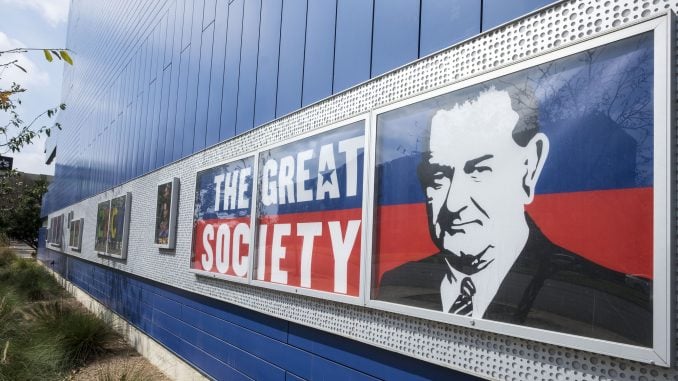
Last week in The Washington Post, former Treasury Secretary Robert Rubin gave a passionate plea to double down on Great Society-era welfare programs. In his op-ed piece, titled “Why hurting the poor will hurt the economy,” Rubin surveyed the myriad welfare programs from Medicaid to food stamps, concluding that these anti-poverty programs are “an economic imperative.” Rubin argued they not only reduce poverty, but they also stimulate economic growth.It is very difficult to understand how a former Treasury secretary and successful businessman can arrive at these conclusions. Beginning in the mid-1960s, billions and billions of tax dollars have been committed to an earnest fight against poverty. There has been no lack of good will, sincere effort, and taxpayer funding as federal programs have proliferated and expanded. What has been the return on this “investment?”From 1950 until the mid-1960s, the U.S. official poverty rate declined from 30 percent to approximately 14 percent, with very little in the way of government welfare programs. With the advent of Lyndon Johnson’s “Great Society,” huge changes occurred in our welfare policy. Welfare spending as a percentage of gross domestic product rose from under 2 percent in 1950 to over 4 percent in 1980. In 2010, welfare spending hit a whopping 4.75 percent of GDP. Welfare benefits became a right not a privilege. President Kennedy’s principle that welfare programs should “Give a hand, not a handout” was completely abandoned. Equality of opportunity was no longer the objective, but rather equality of outcome. Well-meaning policies had the unintended consequences of undermining the stability of the basic family unit and developing an insidious dependency among a permanent underclass.After 50 years of persistent commitment to this War on Poverty, the official poverty rate remains virtually unchanged. A truly shocking fact.The disastrous effects of these policies have sadly been borne disproportionately by the black population. From the beginning of the 20th century until the mid-1906s, black males had been participating in the work force at rates as high as or sometimes higher than white males. This began to change rapidly under the War on Poverty. By 1980, the participation rate of black males lagged 8 percent behind white males; and this deficit has remained in the 6.5-8 percent range since 1980.There was also a surge in illegitimate births. Again, this scourge was borne disproportionately by blacks. Illegitimate births among blacks held relatively steady at 17-20 percent from 1950 to 1965, then skyrocketed to 48 percent by 1980. Similarly, illegitimate births among whites held relatively steady at 2-3 percent from 1950-1965, when they soared to 11 percent.By 1980, 65 percent of all poor blacks who were living in families were in families without a male present. The late Sen. Daniel Patrick Moynihan catalogued these disastrous effects beginning as early as 1965 and faced a firestorm of scorn from his fellow Democrats and other liberals.The prevailing thought among politicians and intellectuals for the last half century has been very much in line with Rubin’s views. But gradually there has arisen a grudging acknowledgement that these programs are failing. Periodic calls for reform have escalated. The need for radical reform is more urgent.The work of sociologists such as Charles Murray have well documented the failures and the costs of the welfare system. Murray’s landmark book, “Losing Ground,” did much to frame the discussion. This book was a major influence on the reforms passed by the Republican Congress and signed by President Bill Clinton in the 1990s, which heralded “an end to welfare as we know it.” Unfortunately, the success of these reforms has been seriously eroded during the Obama years.I heartily concur with Rubin’s concluding plea: “Just think of how our economy would benefit if we finally marshaled the will and resources to effectively combat poverty.” Indeed, it is absolutely immoral for us not to try to accomplish this goal.However, instead of doubling down on Great Society programs as Rubin advocates, we need to jettison the failing programs and enact real reform. As Charles Murray has written, “When reforms finally do occur, they will happen not because stingy people have won, but because generous people have stopped kidding themselves.”Garland S. Tucker III is a Raleigh business executive, historian, and author. His latest book is “Conservative Heroes: Fourteen Leaders Who Shaped America, from Jefferson to Reagan.”



